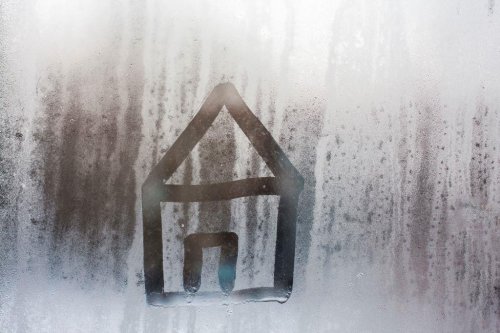News
Wednesday 17th February 2021A good time for a condensation conversation

IS your home suffering from a build-up of condensation? Well, don’t get steamed up about it! There are plenty of measures that tenants and property owners can take to reduce or eliminate condensation.
If you’re struggling with condensation on your windows, doors or in the air you breathe, you’re not alone. One in five homes across the UK suffers from condensation and, with lower temperatures over winter months, problems often get worse at this time of year.
Condensation is a result of high levels of humid air trapped in a building or property that is unable to escape because of poor ventilation. In most cases it results from everyday living, such as boiling kettles or running a bath.
The warm air in our homes can only hold so much moisture before it condenses onto colder surfaces, especially windows.
But don’t despair – the problem can usually be minimised or completely overcome by ensuring that everyone living in the property follows some of these easy tips:
1. Keep your property ventilated
Improve the ventilation in your property and you will most likely start to notice a real difference. You may think that double or triple glazing or insulation are the answer, but this can often cause even more moisture to become trapped in our homes.
Finding a happy balance between heat retention and adequate ventilation is the key. In winter, many people choose not to open windows. But this simple low-tech solution is one of the most effective ways to reduce condensation. So choose a window that can let moist air out whilst not letting too much cold air in.
Don’t forget too that ventilation is also advised by health experts worried about the spread of the Coronavirus within households.
2. Produce less moisture inside
The average family of four produces around 14 litres of water vapour each day from basic everyday living. Here are some ways to reduce moisture within your home:
WINDOWS – Open windows when cooking and in the bathroom to prevent steam build-up. Wipe off water from steamed-up windows or sills and wring out the cloth into a sink. Don’t dry it on a radiator.
AIR VENTS – Don’t block off any existing air vents or fit any new draught-proofing in a poorly ventilated room.
DRYING CLOTHES – When possible, always dry clothes outdoors if you can and avoid hanging items on radiators. If drying clothes outside is not an option, aim to dry clothing in a well-ventilated room, with the door closed.
TUMBLE DRIERS – Make sure your machine is vented to the outside of the building.
FURNITURE POSITION – In a furnished flat, leave a space between the furniture and the wall, allowing air to flow easily.
LIDS AND HOODS – Cook with pan lids on and turn the heat down once the water starts to boil. Turn on extractor hoods and keep them on for at least 15 minutes after cooking to prevent steam build-up in the kitchen.
CLOSING DOORS – After a bath or shower, keep the door closed for a while. This allows the bathroom to cool naturally and stops steam spreading to other rooms.
EXCESS MOISTURE – After any activity that produces excess water, wipe down all cool surfaces with a cloth to prevent mould growth forming, especially in your kitchen and bathroom.
These are just some changes you can introduce into your daily routine without drastically changing your lifestyle. Simple but effective!
3. Are you aware of the signs?
Condensation is now the most common form of damp in rented properties, but are you aware of how to spot and tackle the early signs of condensation?
Mould growth on walls, behind furniture or in the kitchen or bathroom is a sure sign of condensation issues. It can also form behind wardrobes, especially on north-facing walls. Peeling wallpaper can also mean there’s too much airborne moisture. But black mould can potentially be a result of other underlying damp problems.
If you’re following these tips and you’re still having problems, or if you do spot black mould, you may need to contact your landlord or a damp-prevention / ventilation expert for further assistance.
